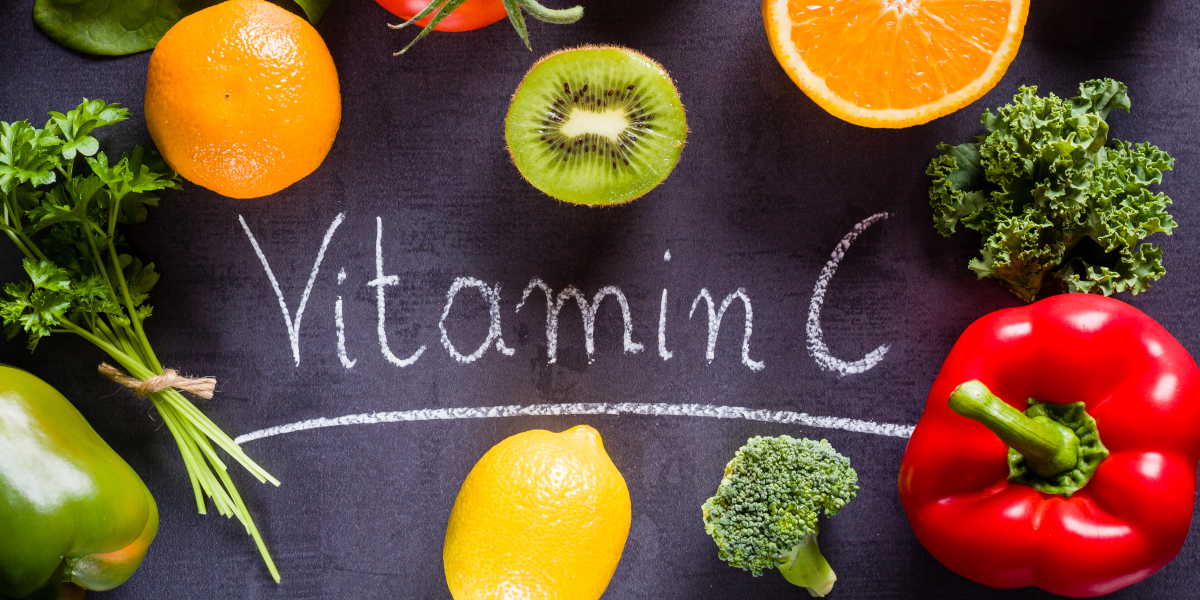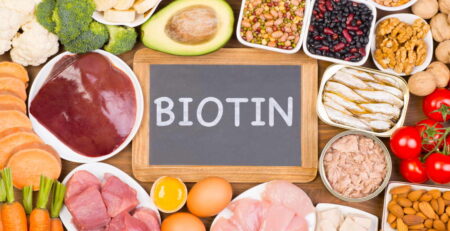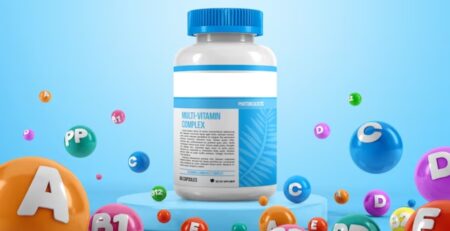What is Vitamin C Good For? A Whole Lot!
Why do we add vitamin C to our vitamin formulations?
We’ve all heard that vitamin C can provide immune support to help fight the common cold, but you may not be as familiar with its many other benefits. There are many forms of vitamin C that are available as dietary supplements: sodium ascorbate, calcium ascorbate, and the most common form — ascorbic acid (which is sometimes paired with bioflavonoids).
Whether eating foods with high concentrations of vitamin C or using vitamin C supplements, getting enough vitamin C is critical to maintaining a strong and healthy body. Our vitamin C powder has 1000mg of vitamin C in each of our vitamin packets.
Vitamin C benefits
Most people associate vitamin C with preventing or curing illness. Although a high dose of vitamin c and zinc may reduce the severity of a cold, it will not prevent one. However, there are many other health benefits of vitamin C.
What is vitamin C good for?
The primary role of vitamin C is to assist in the growth, development, and maintenance of many of the body’s tissues — including blood vessels, collagen, cartilage, muscle, bones, and teeth.
But vitamin C has many other benefits:
- Vitamin C reduces the risk of dementia and other chronic diseases.
- Lowers blood pressure and LDL cholesterol, reducing the risk for cardiovascular disease.
- Taking vitamin C for collagen synthesis helps maintain skin health.
- Aids in the proper function of our immune system.
- Assists in wound healing.
- It helps our bodies absorb iron, lowering the risk of anemia.
- Vitamin C energy supplementation may help reduce fatigue.
- Reduces inflammation and damage caused by athletic training, potentially boosting athletic performance and recovery.

Vitamin C reduces the risk of chronic disease
Vitamin C is an antioxidant. Its antioxidant properties help protect us from disease-causing free radicals — the harmful molecules produced when exposed to things like cigarette smoke and radiation from the sun.
The accumulation of these free radicals in our bodies promotes a state called oxidative stress, which may cause many chronic diseases. For example, oxidative stress and inflammation around the central nervous system increase the risk of dementia.
Vitamin C treatment substantially increases antioxidant levels in the blood, which helps the body fight inflammation and lowers the risk of many chronic diseases such as cataracts and age-related macular degeneration.
Vitamin C can help keep your heart healthy
Risk factors for heart disease include high blood pressure, high LDL cholesterol, and low HDL cholesterol.
Studies have shown that vitamin C supplementation can lower systolic blood pressure by 4.85 mm Hg in adults with high blood pressure and 3.8 mm Hg in adults in average blood pressure ranges.
Vitamin C also helps lower LDL cholesterol levels by around 7.9 mg/dl in adults taking 500 mg vitamin C supplements daily.
What is vitamin C deficiency?
Given all of the benefits, it’s easy to see why vitamin C is an essential nutrient. Unfortunately, deficiency still affects about 7% of adults in the United States.
Poor diet, eating disorders, alcoholism, mental illness, dialysis, and smoking contribute to vitamin C deficiency.
A common result of severe vitamin C deficiency is scurvy, which causes poor wound healing, anemia, bruising, and bleeding gums.
Other common signs of vitamin C deficiency include:
- Brittle, concave fingernails, and toenails, sometimes with red spots or lines running through them.
- Tightly-curled or spiraled body hair.
- Fatigue and irritability.
- Sudden weight gain.
- Dry, damaged skin.
- Easy bruising.
- Slow healing of wounds.
- Painful or inflamed joints.
- Chronic inflammation.
- Weak and brittle bones.
- A condition called keratosis pilaris that causes rough skin on the back of the upper arms, thighs, and glutes.
- Loss of teeth or bleeding gums.
- A weakened immune system.
- Iron deficiency anemia.
How much vitamin C do we need?
The recommended daily vitamin C intake is 90 mg for adult men and 75 mg for adult women. Pregnant women are recommended to get 85 mg and breastfeeding mothers should have 120 mg per day.
The National Academy of Sciences recommended intake of vitamin C for children is based on age rather than sex:
- Children 1-3: 15 mg
- Children 4-8: 25 mg
- Adolescents 9-13: 45 mg
- Teens 14-18: 65 to 75 mg
Because smoking inhibits the absorption of vitamin C, smokers should take an additional 35 mg of vitamin C daily. Even frequent secondhand smoke may reduce absorption.
The tolerable upper intake level of vitamin C is 2,000 mg per day. When taken in higher amounts, vitamin C may cause side effects like nausea and diarrhea. Frequent vitamin C supplementation may cause kidney stones in some people. Consult with your healthcare provider before beginning any vitamin supplementation.
For better absorption, pair vitamin C with vitamins A, vitamin D, and vitamin E.
How to reach the recommended daily amount of vitamin C
Because our bodies don’t produce or store vitamin C, we need to get it from our food and supplements.
Luckily, reaching the recommended daily dose of vitamin C is relatively easy in developed countries thanks to high vitamin C foods, like fresh produce, and the addition of the micronutrient to many common foods.

Raw fruits and vegetables
Raw fruits and vegetables are the best natural source of vitamin C. Cooked produce provides less than raw because heat breaks down the nutrients.
Vitamin C is a water-soluble vitamin. As a result, cooking methods that immerse food in hot water — like boiling — can reduce vitamin C levels by up to 50%. Microwaving eliminates as much as 30% of a food’s vitamin C content and steaming removes up to 15%.
Frying, baking, and roasting help retain most of a food’s vitamin C content, making them the best cooking methods for optimum nutrient content.
High vitamin C foods
When we think of foods with high levels of vitamin C, citrus fruits and orange juice are often the first to come to mind. But many other fruits and vegetables contain even higher levels of vitamin C.
The 10 readily available foods with the highest vitamin C content include:
- yellow bell peppers — 183 mg per 100 g (203% DV)
- green bell peppers — 128 mg per 100 g (142% DV)
- broccoli — 89 mg per 100 g (99% DV)
- kiwi — 75 mg per 100 g (83% DV)
- strawberries — 59 mg per 100 g (66% DV)
- oranges — 53 mg per 100 g (59% DV)
- Brussels sprouts — 49 mg per 100 g (54% DV)
- tomato — 23 mg per 100 g (26% DV)
- kale — 18 mg per 100 g (20% DV)
- cantaloupe — 17 mg per 100 g (19% DV)
If you consider foods that may be a little harder to find, camu camu contains up to a whopping 3,000 mg per 100 g, acerola cherries 1,652 mg per 100 g, and rose hips 426 mg per 100 g.
We calculated the percent DV using a baseline recommended dietary allowance (RDA) of 90 mg.
Vitamin C supplements
Dietary supplements offer a simple and safe solution to boost vitamin C intake. Multivitamin supplements can help fill the gap between your goal and what your diet provides if you’re struggling to reach your daily vitamin C dose.
Supplemental vitamin C is available in powders, gummies, and chewable tablets.
Vitamin C is crucial for overall health
Vitamin C plays a crucial role in our health, yet many people are deficient in this essential vitamin. That’s why we add vitamin C to our vitamin formulations — so you can live your best, healthiest life.
Why trust VitaminMD with your vitamin formulations?
The VitaminMD Story
Dr. David Nazarian developed VitaminMD in response to the COVID-19 pandemic. He saw his patients’ diets lacked an all-inclusive vitamin — an essential immunity boost that optimizes overall health. He also noticed that most of his patients were vitamin D-deficient and unaware of its many problems.
Many patients asked Dr. Nazarian what to take to boost their immune systems and keep their bodies strong against infections, but there wasn’t one product with all the necessary ingredients. Our daily vitamin packets contain the optimal levels of vitamin c powder for skin health, anti-oxidants, joints, heart health and more. Our ascorbic acid powder and drink is great tasting with good absorption.
About VitaminMD
There is a wide variety of multivitamins available to the public. Unfortunately, no single multivitamin has been specifically formulated to meet today’s needs. VitaminMD’s formulas contain many ingredients that patients can’t find in a single product. Our vitamin supplements and vitamin packets are easy to drink, great tasting, and absorb better than tablets. An M.D. formulated VitaminMD on the pandemic frontlines to meet today’s health needs.
Who likes taking multiple pills and tablets each day? No one. That’s why VitaminMD’s vitamin packets deliver a robust and comprehensive dose of all the necessary vitamins for boosting the immune system and supporting overall health. Other vitamins often lack main ingredients — meaning patients must take multiple daily vitamins to meet all their needs.
Many people are deficient in vitamin D, and popular immunity drinks on the market today lack enough vitamin D. VitaminMD has the necessary dosage of vitamin D and other great ingredients that boost immunity and optimize overall health.
References
Institute of Medicine (US) Panel on Dietary Antioxidants and Related Compounds. Dietary Reference Intakes for Vitamin C, Vitamin E, Selenium, and Carotenoids. Washington (DC): National Academies Press (US); 2000. THE NATIONAL ACADEMIES. Available from: https://www.ncbi.nlm.nih.gov/books/NBK225474/
Juraschek SP, Guallar E, Appel LJ, Miller ER. Effects of vitamin C supplementation on blood pressure: a meta-analysis of randomized controlled trials. Am J Clin Nutr. 2012;95(5):1079-88.












Comment (1)
[…] has the best electrolyte supplement with the necessary dosage of minerals and vitamins such as vitamin C, vitamin D, and B-complex […]